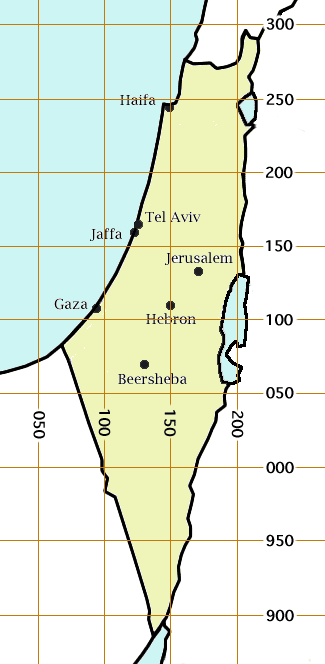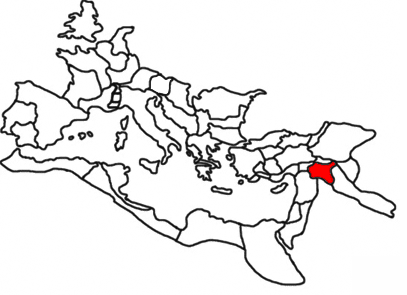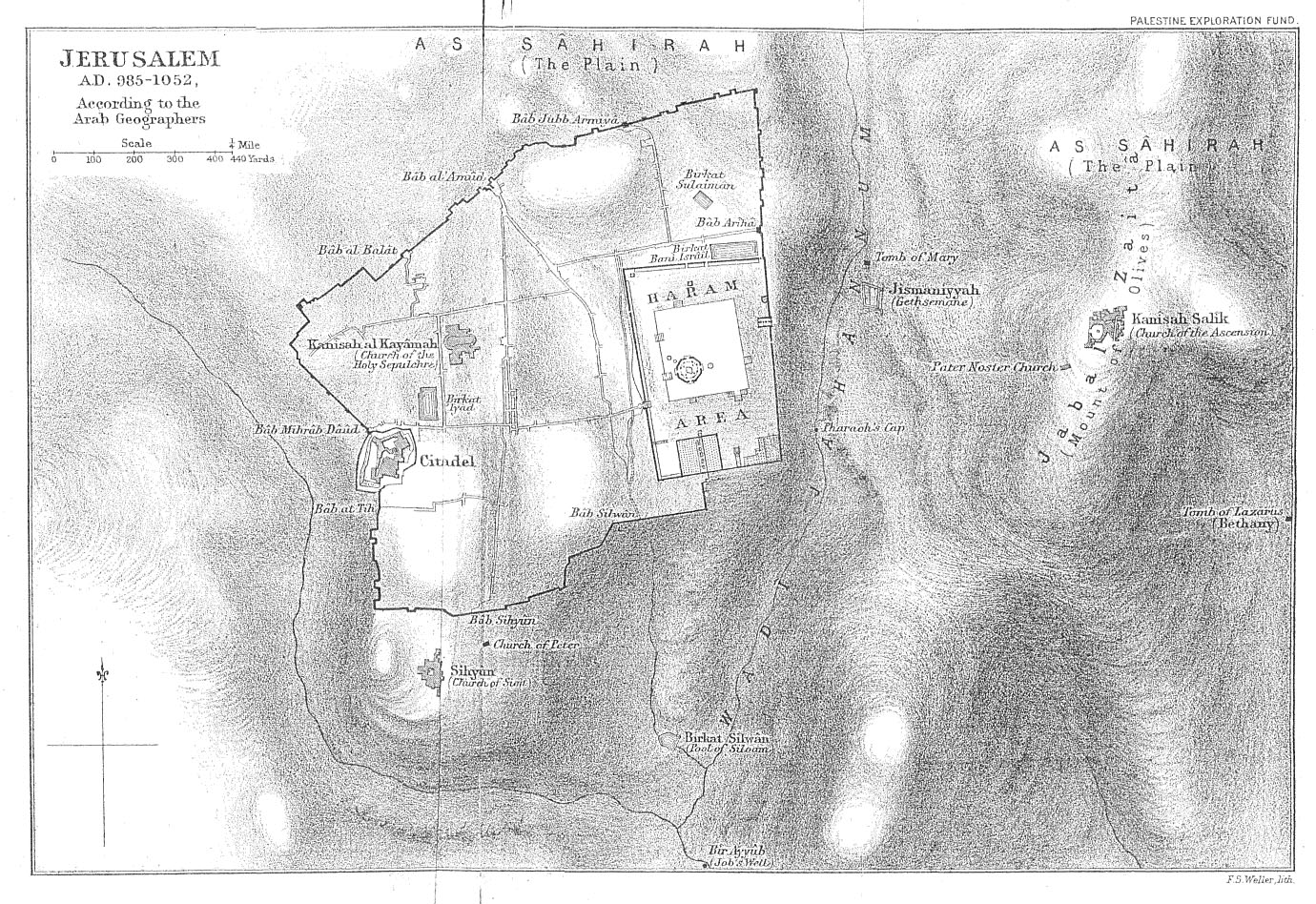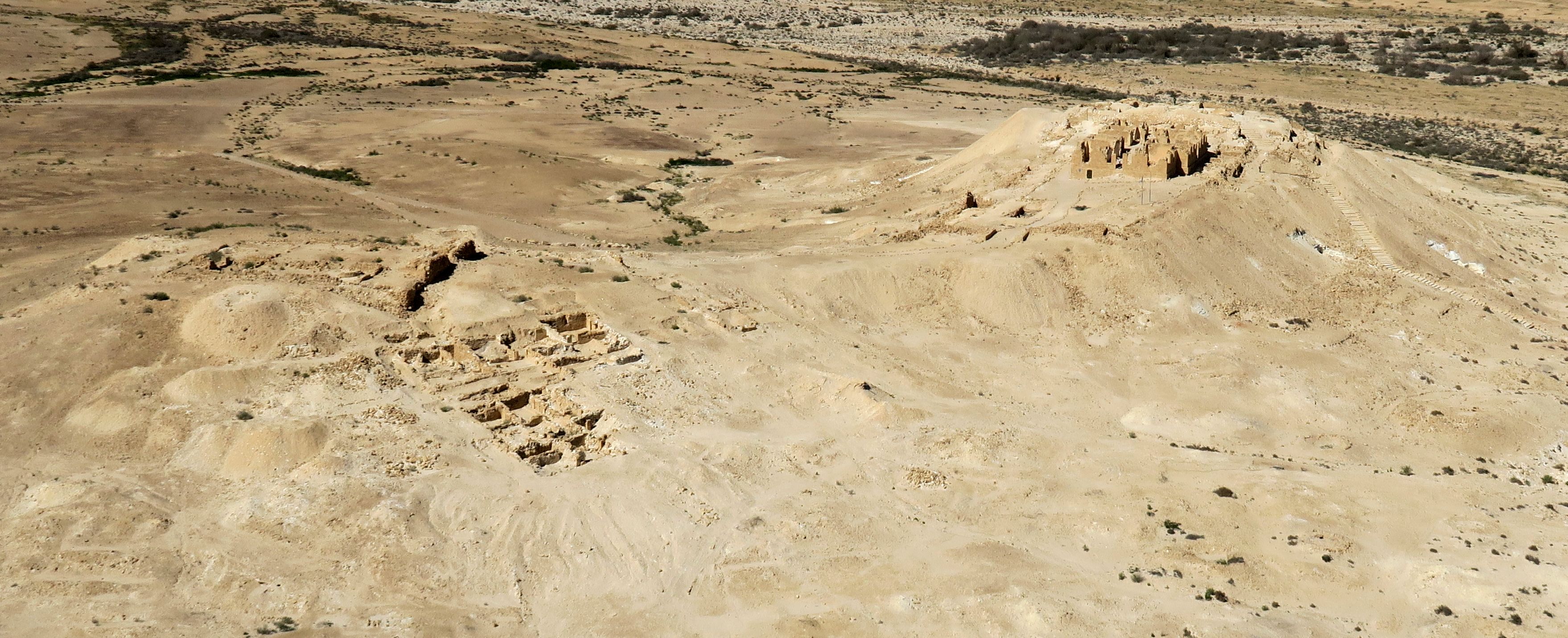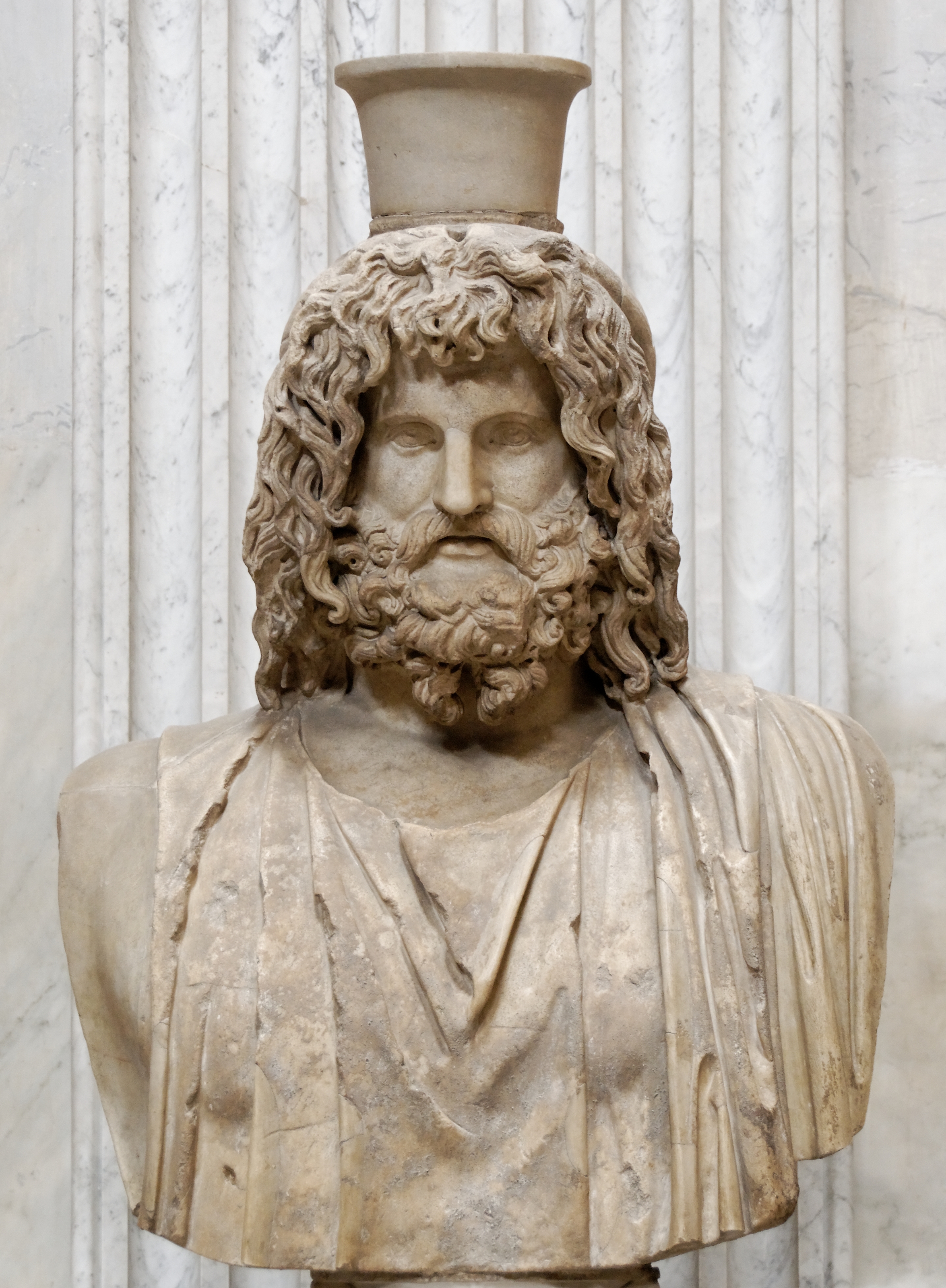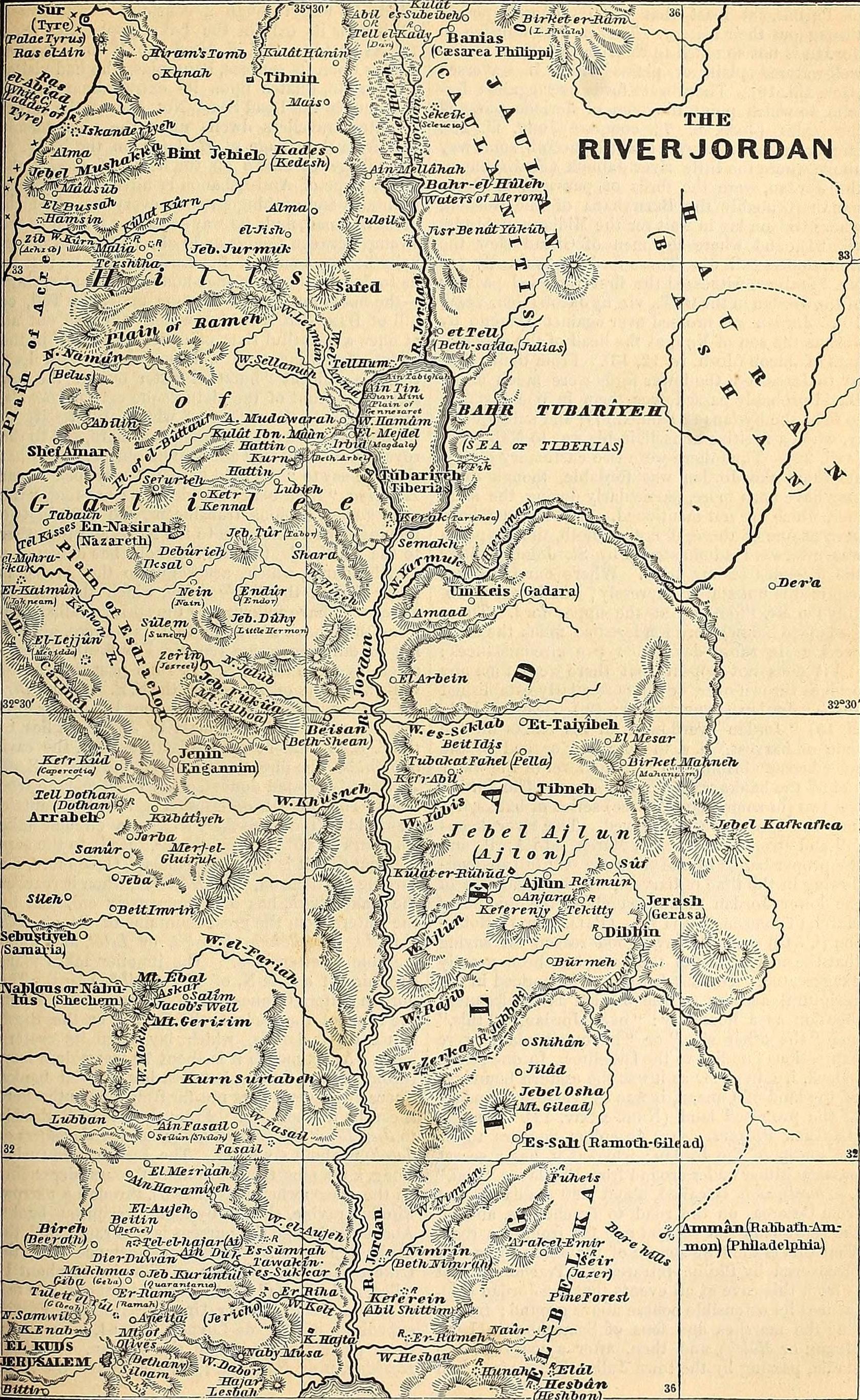|
Al-Khalasa
Al-Khalasa (; , ''al-Khalatsah''), was a Palestinian village, located 23 kilometers southwest of the town of Beersheba. The village stood at the site of an ancient town from the Nabatean, Roman, Byzantine, and the beginning of the Early Muslim period. The ancient city, founded by the Nabateans, is known from Greek and Roman sources as "Halasa" or "Chellous", and later as "Elusa", one of the Byzantine administrative centers in the Negev Desert. Still important in the century of the Muslim conquest, it was deserted not long after. The site was repopulated by Bedouin in the early twentieth century, after western archaeologists took an interest in it. In October 1948, it was captured by Israel during the 1948 Arab-Israeli War. The population of al-Khalasa is unknown, but all of the inhabitants were Muslims, from the al-Azizma tribe. History Nabataean, Roman, and Byzantine periods The ancient site was founded by the Nabateans, probably in the late 4th or early 3rd century BCE. R ... [...More Info...] [...Related Items...] OR: [Wikipedia] [Google] [Baidu] |
Palestine Grid
The Palestine grid was the geographic coordinate system used by the Survey Department of Palestine. The system was chosen by the Survey Department of the Government of Palestine in 1922. The projection used was the Cassini projection, Cassini-Soldner projection. The central Meridian (geography), meridian (the line of longitude along which there is no local distortion) was chosen as that passing through a marker on the hill of Mar Elias Monastery south of Jerusalem. The false origin (zero point) of the grid was placed 100 km to the south and west of the Ali el-Muntar hill that overlooks Gaza City, Gaza city. The unit length for the grid was the kilometre; the British units were not even considered. At the time the grid was established, there was no intention of mapping the lower reaches of the Negev Desert, but this did not remain true. Those southern regions having a negative Easting and northing, northing coordinate then became a source of confusion, which was solved by ad ... [...More Info...] [...Related Items...] OR: [Wikipedia] [Google] [Baidu] |
Nabateans
The Nabataeans or Nabateans (; Nabataean Aramaic: , , vocalized as ) were an ancient Arab people who inhabited northern Arabia and the southern Levant. Their settlements—most prominently the assumed capital city of Raqmu (present-day Petra, Jordan)—gave the name ''Nabatene'' () to the Arabian borderland that stretched from the Euphrates to the Red Sea. The Nabateans emerged as a distinct civilization and political entity between the 4th and 2nd centuries BC, with their kingdom centered around a loosely controlled trading network that brought considerable wealth and influence across the ancient world. Described as fiercely independent by contemporary Greco-Roman accounts, the Nabataeans were annexed into the Roman Empire by Emperor Trajan in 106 AD. Nabataeans' individual culture, easily identified by their characteristic finely potted painted ceramics, was adopted into the larger Greco-Roman culture. They converted to Christianity during the Byzantine period. They ... [...More Info...] [...Related Items...] OR: [Wikipedia] [Google] [Baidu] |
Hellenistic
In classical antiquity, the Hellenistic period covers the time in Greek history after Classical Greece, between the death of Alexander the Great in 323 BC and the death of Cleopatra VII in 30 BC, which was followed by the ascendancy of the Roman Empire, as signified by the Battle of Actium in 31 BC and the Roman conquest of Ptolemaic Egypt the following year, which eliminated the last major Hellenistic kingdom. Its name stems from the Ancient Greek word ''Hellas'' (, ''Hellás''), which was gradually recognized as the name for Greece, from which the modern historiographical term ''Hellenistic'' was derived. The term "Hellenistic" is to be distinguished from "Hellenic" in that the latter refers to Greece itself, while the former encompasses all the ancient territories of the period that had come under significant Greek influence, particularly the Hellenized Middle East, after the conquests of Alexander the Great. After the Macedonian conquest of the Achaemenid Empire in ... [...More Info...] [...Related Items...] OR: [Wikipedia] [Google] [Baidu] |
Arabic
Arabic (, , or , ) is a Central Semitic languages, Central Semitic language of the Afroasiatic languages, Afroasiatic language family spoken primarily in the Arab world. The International Organization for Standardization (ISO) assigns language codes to 32 varieties of Arabic, including its standard form of Literary Arabic, known as Modern Standard Arabic, which is derived from Classical Arabic. This distinction exists primarily among Western linguists; Arabic speakers themselves generally do not distinguish between Modern Standard Arabic and Classical Arabic, but rather refer to both as ( "the eloquent Arabic") or simply ' (). Arabic is the List of languages by the number of countries in which they are recognized as an official language, third most widespread official language after English and French, one of six official languages of the United Nations, and the Sacred language, liturgical language of Islam. Arabic is widely taught in schools and universities around the wo ... [...More Info...] [...Related Items...] OR: [Wikipedia] [Google] [Baidu] |
History Of Jerusalem During The Early Muslim Period
The history of Jerusalem during the Early Muslim period covers the period between the capture of the city from the Byzantines by the Arab Muslim armies of the nascent Caliphate in 637–638 CE, and its conquest by the European Catholic armies of the First Crusade in 1099. Throughout this period, Jerusalem remained a largely Christian city with smaller Muslim and Jewish communities. It was successively part of several Muslim states, beginning with the Rashidun caliphs of Medina, the Umayyads of Syria, the Abbasids of Baghdad and their nominal Turkish vassals in Egypt, and the Fatimid caliphs of Cairo, who struggled over it with the Turkic Seljuks and different other regional powers, only to finally lose it to the Crusaders. The second caliph, Umar (), secured Muslim control of the city from the Patriarch of Jerusalem. During his rule Muslim prayer was likely established on the Temple Mount and limited numbers of Jews were allowed to reside in the city after a five centuries-long ... [...More Info...] [...Related Items...] OR: [Wikipedia] [Google] [Baidu] |
Nessana
Nessana, Modern Hebrew name Nizzana, also spelled Nitzana (), is an ancient Nabataean city located in the southwest Negev desert in Israel close to the Egyptian border. It started by being a Camel train, caravan station on the ancient Incense Road, protecting a western branch of the road which allowed access to Egypt to the west via the Sinai Peninsula, Sinai, and to Beersheba, Hebron and Jerusalem to the northeast. It was first used by Nabataean merchants, and later also by Christian pilgrims. Nessana was among the earlier Nabataean towns of the Negev, established as caravan stations in the late the 4th or the early 3rd century BCE, annexed in 106 CE by the Roman Empire, Romans, who garrisoned the site, and inhabited by Byzantine Christians from the fourth century at the latest, until after the Muslim conquest of Syria, Arab Muslim conquest of the seventh century. Relatively few stones remain at the site because most were recycled into buildings in Gaza City, Gaza throughout the ... [...More Info...] [...Related Items...] OR: [Wikipedia] [Google] [Baidu] |
Hellenistic Pagan
The concept of Hellenistic religion as the late form of Ancient Greek religion covers any of the various systems of beliefs and practices of the people who lived under the influence of ancient Greek culture during the Hellenistic period and the Roman Empire ( 300 BCE to 300 CE). There was much continuity in Hellenistic religion: people continued to worship the Greek gods and to practice the same rites as in Classical Greece. Change came from the addition of new religions from other countries, including the Egyptian deities Isis and Serapis, and the Syrian gods Atargatis and Hadad, which provided a new outlet for people seeking fulfillment in both the present life and the afterlife. The worship of deified Hellenistic rulers also became a feature of this period, most notably in Egypt, where the Ptolemies adapted earlier Egyptian practices and Greek hero-cults and established themselves as Pharaohs within the new syncretic Ptolemaic cult of Alexander III of Macedonia. Elsewhere, r ... [...More Info...] [...Related Items...] OR: [Wikipedia] [Google] [Baidu] |
Christians
A Christian () is a person who follows or adheres to Christianity, a monotheistic Abrahamic religion based on the life and teachings of Jesus Christ. Christians form the largest religious community in the world. The words '' Christ'' and ''Christian'' derive from the Koine Greek title (), a translation of the Biblical Hebrew term '' mashiach'' () (usually rendered as ''messiah'' in English). While there are diverse interpretations of Christianity which sometimes conflict, they are united in believing that Jesus has a unique significance. The term ''Christian'' used as an adjective is descriptive of anything associated with Christianity or Christian churches, or in a proverbial sense "all that is noble, and good, and Christ-like." According to a 2011 Pew Research Center survey, there were 2.3 billion Christians around the world, up from about 600 million in 1910. Today, about 37% of all Christians live in the Americas, about 26% live in Europe, 24% live in sub-Saharan Afric ... [...More Info...] [...Related Items...] OR: [Wikipedia] [Google] [Baidu] |
Palaestina Tertia
Palaestina Salutaris or Palaestina Tertia was a Late Roman and Byzantine province, which covered the area of the Negev, Sinai (except the north-western coast) and south-west of Transjordan, south of the Dead Sea. The province, a part of the Diocese of the East, was split from Arabia Petraea during the reforms of Diocletian in c. 300 CE and existed until the Muslim Arab conquests of the 7th century. Background In 106, the territories east of Damascus and south to the Red Sea were annexed from the Nabataean Kingdom and reformed into the province of Arabia with capitals Petra and Bostra (north and south). The province was enlarged by Septimius Severus in 195, and is believed to have split into two provinces: Arabia Minor or Arabia Petraea and Arabia Maior, both subject to imperial legates ranking as ''consularis'', each with a legion. By the 3rd century, the Nabataeans had stopped writing in Aramaic and begun writing in Greek instead, and by the 4th century they had partially ... [...More Info...] [...Related Items...] OR: [Wikipedia] [Google] [Baidu] |
Rhetorician
Rhetoric is the art of persuasion. It is one of the three ancient arts of discourse (trivium) along with grammar and logic/dialectic. As an academic discipline within the humanities, rhetoric aims to study the techniques that speakers or writers use to inform, persuade, and motivate their audiences. Rhetoric also provides heuristics for understanding, discovering, and developing arguments for particular situations. Aristotle defined rhetoric as "the faculty of observing in any given case the available means of persuasion", and since mastery of the art was necessary for victory in a case at law, for passage of proposals in the assembly, or for fame as a speaker in civic ceremonies, he called it "a combination of the science of logic and of the ethical branch of politics". Aristotle also identified three persuasive audience appeals: logos, pathos, and ethos. The five canons of rhetoric, or phases of developing a persuasive speech, were first codified in classical Rome: invention, ... [...More Info...] [...Related Items...] OR: [Wikipedia] [Google] [Baidu] |
Negev
The Negev ( ; ) or Naqab (), is a desert and semidesert region of southern Israel. The region's largest city and administrative capital is Beersheba (pop. ), in the north. At its southern end is the Gulf of Aqaba and the resort town, resort city and port of Eilat. It contains several development towns, including Dimona, Arad, Israel, Arad, and Mitzpe Ramon, as well as a number of small Negev Bedouin, Bedouin towns, including Rahat, Tel Sheva, and Lakiya. There are also several kibbutzim, including Revivim and Sde Boker; the latter became the home of Israel's first Prime Minister of Israel, prime minister, David Ben-Gurion, after his retirement from politics. Although historically part of a separate region (known during the Roman Empire, Roman period as Arabia Petraea), the Negev was added to the proposed area of Mandatory Palestine, of which large parts later became Israel, on 10 July 1922, having been conceded by British representative St John Philby "in Emirate of Transjordan, ... [...More Info...] [...Related Items...] OR: [Wikipedia] [Google] [Baidu] |
Jordan River
The Jordan River or River Jordan (, ''Nahr al-ʾUrdunn''; , ''Nəhar hayYardēn''), also known as ''Nahr Al-Sharieat'' (), is a endorheic river in the Levant that flows roughly north to south through the Sea of Galilee and drains to the Dead Sea. The river passes by or through Jordan, Syria, Israel, and the Palestinian territories. Jordan and the Israeli-occupied Golan Heights border the river to the east, while Israel and the Israeli-occupied West Bank lie to its west. Both Jordan and the West Bank derive their names in relation to the river. The river holds major significance in Judaism and Christianity. According to the Bible, the Israelites crossed it into the Promised Land and Jesus of Nazareth was baptized by John the Baptist in it. Etymology Several hypotheses for the origin of most of the river's names in modern languages (e.g., Jordan, Yarden, Urdunn), one is that it comes from Semitic 'Yard, on' 'flow down' <√ירד reflecting the river's declivity, possibly a ... [...More Info...] [...Related Items...] OR: [Wikipedia] [Google] [Baidu] |
